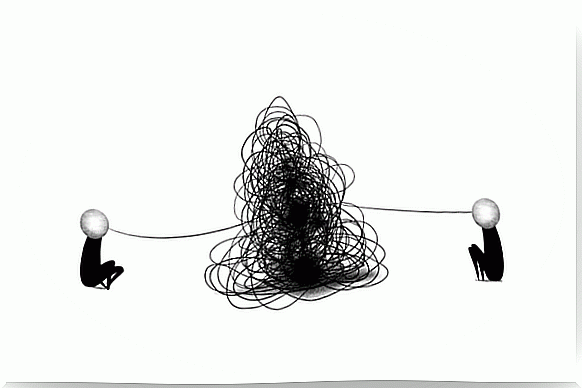Anger Can Rule Your Mind

Anger is an emotion that can hijack your thoughts, words, and actions. It’s a form of defense that, if not used properly, can turn against you and do a lot of damage, especially if you let it run free.
While we may not love it, we’ve all learned over and over that we can’t avoid it. It has evolved as a natural tool that can be used to confront perceived injustices. For example, when a child complains a lot and claims that his brother or sister has taken something from him, this is a way to assert his own interest and prevent his integrity from being undermined. The problem with anger arises when the child cannot get over his tantrum.
In other words, if the child gets caught up in the idea that his sibling has taken a toy from him, his physiological and cognitive system gets caught in a spiral of negative thoughts and feelings that keep him from moving on.

The Vulnerability Behind Anger
We don’t like to show anger in public because we think we’re degrading ourselves by doing so. We are afraid to express it, so we often only show it at home, to the people who know us, because we think they won’t judge us for it.
If anger is properly maintained, then it is not very visible to the outside world. However, as we’ve said several times, expressing your anger can provide you with information about the things that are bothering you. It helps you to examine yourself and find your balance.
The main reason we punish expressing anger is that we confuse it with rage, or the exaggerated or uncontrolled expression of what bothers us. In other words, we equate exploding and screaming with frowning when something bothers us.
In reality, however, anger is not the same as rage. The latter means that we cannot properly control our anger. When you bottle up your anger for too long, you end up creating a whole beach with one grain of sand. And that’s when your scene kicks.
When you are unable to acknowledge and express the things that are bothering you, they turn into a powerful mixture of emotions that takes control of your entire mind, brain and body.
Why? Because you focus all your attention on a single event, until it becomes a veritable snowball of emotions that keeps getting bigger and bigger.

Understanding and expressing, the first step to cool down
When you make yourself aware of your feelings and emotions, you are one step closer to maintaining these feelings and emotions and using them in a beneficial rather than harmful way. You can put an end to your anger by expressing yourself and freeing yourself from that emotional burden that puts you in a negative mood and upsets your balance.
Going back to the example of the child whose toys were taken away, it is helpful to think about normal ways to achieve equality through protest and to restore the freedom that had been violated.
However, as we mentioned earlier, when anger is based on a physical or psychological threat, it is important to put these feelings and emotions into words. If you don’t, thoughts and actions that promote negativity without solving the problem will take over you.

The Anatomy of an Emotional, Furious Brain
When you perceive that you or something that is important to you personally is being wronged, the limbic system (the amygdala and its associated structures) receives a spark that activates the motor.
In other words, these kinds of events activate the nervous system to prepare the body and mind for action. The neocortex is responsible for assessing and preparing a course of action that is appropriate for the situation.
The limbic system releases catecholamines, which help us react quickly and decisively. At times like these, when the activation of this type of response is very high, you may feel like you’re on fire. Your cheeks heat up, your knuckles whiten, and your thoughts race.
In the meantime, the adrenal gland secretes adrenaline, which prepares us for action for a longer period of time. This hypersensitivity can completely control the mind, which tends to live on the spiral of negative thoughts.
That is, just the slightest touch can make you jump several feet in the air, causing your anger to pile up, further limiting your cognitive ability as you become unable to reason properly. This causes you to undervalue the thoughts that could counteract a worsening of your anger.

To calm anger, you need to emotionally distance yourself
The key to properly managing anger is to soften your agitation. You can do this in two ways:
- Physically and emotionally distancing yourself from the situation to prevent yourself from being taken over by adrenaline and from eating this adrenaline on your irritability.
- Cut off your inner dialogue, or in other words, distract yourself and don’t give too much power to the thoughts that control your mind.
That’s why we say that anger is an emotion that tempts your mind, that convinces you that what you got angry about is the source of all the bad in your life.
Allowing one hostile thought after another to arise creates a series of fears that continue to grow and eventually turn into rage. By questioning these chains, you can calm the images in your head that are causing you so much anxiety.
By not rekindling the fire, it will go out little by little, and you will be able to see the situation without those chains in your head that previously controlled you. This is the first step to good emotional well-being.
Further reading material:
Goleman, D. (1995). Emotional Intelligence. Bantam Books.









